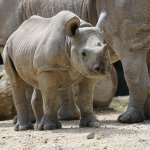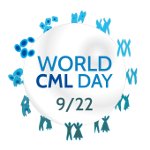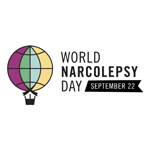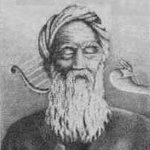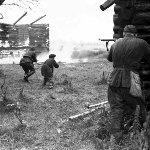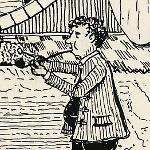Holidays Calendar for September 22, 2018
The citizens of Bulgaria celebrate Independence Day on September 22. This public holiday commemorates the independence of Bulgaria from the Ottoman Empire in 1908.
September 22 is Independence Day in Mali. This national holiday commemorates the independence of Mali from France as the Republic of Mali in 1960.
World Car Free Day is a global event held on September 22. It encourages drivers to give up their cars for a day and use public transportation, ride a bicycle, or simply walk.
World Rhino Day is an international ecological observance celebrated on September 22. It was inaugurated in 2010 to raise awareness of the need to protect the five existing species of rhinoceros: white rhino, black rhino, Indian rhino, Javan rhino and Sumatran rhino.
World Chronic Myeloid Leukemia Day (World CML Day) is observed on September 22 every year. Its main goal is to spread information about one of the common types of leukemia and to raise public awareness about the problems of people with CML and the importance of finding a cure.
World Narcolepsy Day is observed annually on September 22 to raise awareness of a chronic sleep disorder that severely affects the quality of life and increases the risk of dangerous accidents such as falls and motor vehicle collisions.
International Rabbit Day is observed annually on the fourth Saturday of September. It was created to celebrate one of the cutest animals on the planet, as well as to promote responsible pet ownership and the protection of rabbits that live in the wild.
American Business Women's Day is celebrated on September 22. This secular holiday honors the anniversary of the founding of the American Business Women's Association.
Almost every holiday celebrated across the world has its history or commemorates certain persons or events. However, there are some holidays, that can't boast specific history, and among them is Teachers' Day in Uruguay.
National Arbor Day is annually observed in Barbados on September 22. The first observance of this day dates back to 1907.
Elephant Appreciation Day is an informal holiday celebrated in the United States and some other countries on September 22. It is dedicated to one of the most amazing animals in the world.
National Public Lands Day (NPLD) is a annual national observance that typically falls on the fourth Saturday in September. It focuses on volunteer conservation of public lands (lands held by central or local governments).
National Hunting and Fishing Day is celebrated in the United States on the fourth Saturday in September. It was first proclaimed in 1972 by President Richard Nixon.
European Mushroom Day (also known as European Day of Action for Fungi) is an annual observance held on the fourth Saturday in September. Its main goal is to raise awareness of the importance of fungi in both ecosystems and our everyday lives.
Rudaki Day is observed in Tajikistan annually on September 22. The holiday was established by President Emomali Rahmon in 2002. It celebrates the renowned Persian poet Abu Abd Allah Rudaki, who is considered a founder of classical Persian and Tajik literature.
Day of Partisan Glory is an official remembrance day observed in Ukraine on September 22. It was officially established in 2001 by President of Ukraine Leonid Kuchma to honor the heroes of the Ukrainian resistance movement during the Second World War.
On September 22, Latvia and Lithuania celebrate the Day of the Baltic Unity. This holiday was established in 2000 to commemorate the Battle of Saule which was fought in 1236. In this battle, Baltic tribes defeated the Livonian Brothers of the Sword.
In Estonia, September 22 is observed as Resistance Fighting Day. It is an official remembrance day that commemorates Otto Tief's failed attempt to restore the country's independence in 1944. The day is considered a national holiday, but it is a working day.
OneWebDay is an annual global observance held on September 22. Its goals are to celebrate the World Wide Web and to raise awareness of the importance of Internet accessibility.
September 22 is a holiday for all of you chocoholics out there. It is the National White Chocolate Day.
Hobbit Day is an informal holiday celebrated by Tolkien fans. It falls on September 22, the birthday of the hobbits Bilbo and Frodo Baggins. Bilbo Baggins is the protagonist of The Hobbit, and his relative Frodo is the primary protagonist of The Lord of the Rings.
Although summer is officially over by late September, you can make it last a little bit longer by celebrating National Ice Cream Cone Day on September 22. Treat yourself to a delicious ice cream cone like it is still summer!
Karam (also known as Karma, Karam Puja or Karma Puja) is a traditional harvest festival celebrated by a number of ethnic groups living in the Indian states of Assam, Chhatisgarh, Jharkhand, Madhya Pradesh, Odisha, and West Bengal. In Jharkhand, it even has the status of an official state holiday.
Festivals for September 22, 2018
- Oz Comic-Con in Brisbane, Australia
- Comic Con Ukraine in Kyiv, Ukraine
- MCM Scotland Comic Con in Glasgow, United Kingdom
- Haifa International Film Festival in Haifa, Israel
- Manaki Brothers International Cinematographers’ Film Festival in Bitola, North Macedonia
- Oktoberfest in Munich in Munich, Germany
- Pacific Islander Festival in San Diego in San Diego, USA
- Warsaw Autumn Music Festival in Warsaw, Poland
- Plano Balloon Festival in Plano, USA
- Bloody Scotland in Stirling, United Kingdom
- Playlist Live in Secaucus, USA
- Essential Baby & Toddler Show in Sydney, Australia
- Pacific Meridian Film Festival in Vladivostok, Russia
- Clamour Live (CVX Live) in Provo, USA
- San Sebastian International Film Festival in San Sebastian, Spain
This Day in History
- 2022 Died: Hilary Mantel, British writer who won the Booker Prize twice: the first was for her 2009 novel Wolf Hall, and the second was for its 2012 sequel Bring Up the Bodies.
- 2015 Died: Yogi Berra, American Major League Baseball (MLB) catcher, manager, and coach. He played almost his entire 19-year baseball career (1946–65) for the New York Yankees.
- 2013 Died: David H. Hubel, American Canadian neurophysiologist who was co-recipient with Torsten Wiesel of the 1981 Nobel Prize in Physiology or Medicine (shared with Roger W. Sperry).
- 2007 Died: Marcel Marceau, French actor and mime artist, best known for his stage persona "Bip the Clown". He referred to mime as the "art of silence", performing professionally worldwide for more than 60 years.
- 1999 Died: George C. Scott, American actor, director, and producer, best known for his stage work and his portrayal of General George S. Patton in the film Patton.
- 1995 The Sri Lankan Air Force carried out a bombing of the Nagar Kovil Maha Vidyalayam school in Jaffna in which at least 34 died, most of them ethnic Tamil schoolchildren.
- 1993 A barge struck a railroad bridge near Mobile, Alabama, causing the deadliest train wreck in Amtrak history. Forty-seven passengers were killed.
- 1989 Died: Irving Berlin, American composer and songwriter whose music forms a large part of the Great American Songbook. His accolades include an Academy Award, a Grammy Award, and a Tony Award.
- 1987 Born: Tom Felton, English actor best known for playing Draco Malfoy in the Harry Potter film series. His other film credits include Rise of the Planet of the Apes, A United Kingdom, and more.
- 1985 Born: Tatiana Maslany, Canadian actress. She rose to prominence for playing multiple characters in the science-fiction thriller television series Orphan Black.
- 1982 Born: Billie Piper, English actress and former singer who came to wide prominence with her role as the Doctor's companion Rose Tyler in the BBC sci-fi series Doctor Who.
- 1975 Sara Jane Moore tried to assassinate US President Gerald Ford. She was given a life sentence for the attempted assassination and was released from prison after serving 32 years.
- 1959 Born: Saul Perlmutter, American astrophysicist, astronomer, and academic, Nobel Prize laureate for his works on supernovae that led to the reinvigoration of research into the nature of the Universe and role of dark energy.
- 1958 Born: Andrea Bocelli, Italian tenor who has had significant success as a crossover performer, bringing classical music to the top of international pop charts.
- 1958 Born: Joan Jett, American rock musician, singer-songwriter, record producer, and actress. She is best known for her work as the frontwoman of her band Joan Jett and the Blackhearts.
- 1957 Born: Nick Cave, Australian musician, writer and actor. Known for his baritone voice and for fronting the rock band Nick Cave and the Bad Seeds, Cave's music is characterized by emotional intensity.
- 1956 Died: Frederick Soddy, English radiochemist who was awarded the 1921 Nobel Prize in Chemistry "for his contributions to our knowledge of the chemistry of radioactive substances".
- 1952 Died: Kaarlo Juho Ståhlberg, Finnish jurist and academic who served as the 1st President of Finland from 1919 to 1925. He was one of the most important pioneers of republicanism in the country.
- 1951 Born: David Coverdale, English singer and songwriter, best known as the founder and lead singer of the hard rock band Whitesnake. He was also the lead singer of Deep Purple from 1973 to 1976.
- 1941 On the Jewish New Year Day, the German SS murders 6,000 Jews in Vinnytsia, Ukraine. Those were the survivors of the previous killings that had occurred a few days earlier.
- 1934 261 miners died at Gresford Colliery in Wales in an explosion and underground fire. Due to extensive damage, only eight of the bodies were ever recovered.
- 1932 Born: Algirdas Brazauskas, Lithuanian politician who served as the fourth president of Lithuania from 1993 to 1998. He was the first democratically elected president of post-Soviet Lithuania.
- 1901 Born: Charles Brenton Huggins, Canadian-American surgeon and physiologist known for his work on prostate function, prostate cancer, and breast cancer.
- 1895 Born: Paul Muni, American actor, best known for the lead role in Scarface. He is also remembered for his roles in The Valiant, The Story of Louis Pasteur, The Life of Emile Zola.
- 1875 Born: Mikalojus Konstantinas Čiurlionis, Lithuanian composer, painter, choirmaster, cultural figure, and writer in Polish, known for contributions to symbolism and Art Nouveau.
- 1870 Born: Charlotte Cooper, English tennis player who won five singles titles at the Wimbledon Championships and in 1900 became Olympic champion.
- 1862 US President Abraham Lincoln released a preliminary version of the Emancipation Proclamation. The final proclamation would be issued on January 1, 1863.
- 1861 Died: Ernst Friedrich Zwirner, German architect known for his immense works. He is best known for being the leading architect of Cologne Cathedral.
- 1857 The Russian warship Lefort capsized and sank during a storm in the Gulf of Finland. All people on board (756 crew and officers, 53 women, and 17 children) died.
- 1791 Born: Michael Faraday, English scientist, best known for his contributions to the fields of electromagnetism and electrochemistry and discoveries of electromagnetic induction, diamagnetism and electrolysis.
- 1703 Died: Vincenzo Viviani, Italian mathematician and scientist, a pupil of Torricelli and Galileo. He served as the First Mathematician of the Tuscan Court.
- 1692 The last hanging of those convicted of witchcraft in the Salem witch trials took place. The Salem witch trials are one of colonial America's most notorious cases of mass hysteria.
- 1566 Died: Johannes Agricola, German Protestant Reformer during the Protestant Reformation. He was a follower and friend of Martin Luther, who became his antagonist in the matter of the binding obligation of the law on Christians.
- 1539 Died: Guru Nanak, the founder of Sikhism and the first of the ten Sikh Gurus. His teachings are registered in the holy religious scripture of Sikhism, the Guru Granth Sahib.
- 1499 The Treaty of Basel was signed following the Battle of Dornach, concluding the Swabian War between the Swabian League and the Old Swiss Confederacy.



